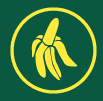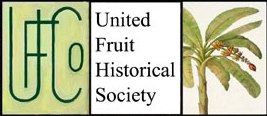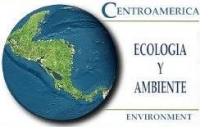Geography of Latin America
|
||
| HOME PAGE | INTERNATIONAL PAGE | RESOURCE PAGE |
Resource Center of the Americas provides news and analysis regarding critical issues throughout the region. Its extensive database is searchable by topic and country. The Washington Office on Latin America (WOLA) promotes human rights and
democracy in Latin America, and conducts research on abuses, including
those for which the United States government shares responsibility.
|
I have been a member of the Latin American Studies Association since 1989.
The Day of the Dead
(Dia de los Muertos) is an important tradition in Mexico, and one that
strikes many North Americans as particularly unusual.
 |
For an unabashedly radical perspectives on Latin America (and many other topics), go to Z-Communications, the online portal for Z magazine and related projects. Yes, radicals do still exist, and they are still needed. This very well-written magazine is for those who think The Nation has gotten too stodgy! |
The Pinochet
Prosecution page at Human Rights Watch describes the efforts to
extradite and prosecute the former Chilean dictator, years after he was
taken out of office. Although it may seem ancient history to North
Americans, U.S. support for this tyrant -- and many like him -- is
still remembered in Latin America.
 |
More generally, see the Human Rights Watch Latin America page for the latest news on human-rights abuses throughout the region. HRW provides advocacy and research support to the brave grassroots activists throughout Latin America who are trying to end politically-motivated assassinations, torture, and disappearances. Citizens of the U.S. have a responsibility to become informed about these issues, because the crimes are sometimes committed on behalf of U.S. corporations or government interests. In particular, look on the site for the latest information about the so-called War on Drugs in Colombia and elsewhere. |
 Check out my Geography of Coffee page!
|
 BANANA LINK |
To understand many of the
catastrophes that have
befallen Latin America, it is important to understand the role that
U.S. government support of the United Fruit Company has played
throughout the twentieth century. Fortunately, Dr. Marcelo Bucheli
has
document this in many publications, including the article Good
Dictator, Bad Dictator and the book Bananas
and Business. It is difficult to overstate the influence of United Fruit: U.S. military forces often served it as a private army, enforcing unequal relations within Latin American agriculture and building generations of resentment. The United Fruit Historic Society web site is inactive (as of June 2008), but it provides many resources, including a bibliography, chronology, and key biographies. Learn more about the industry and what is being done to improve it from Banana Link, a fair trade banana cooperative. |
 |
 The site Centroamerica
Ecologia y Ambiente (Central America Ecology and Environment) presents
research on Central American environmental matters in both English and
Spanish. This site was recommended by a student in my GEOG 130 course.
The site Centroamerica
Ecologia y Ambiente (Central America Ecology and Environment) presents
research on Central American environmental matters in both English and
Spanish. This site was recommended by a student in my GEOG 130 course.
The book Pobreza y Medio Ambiente en America Latina is published by the Centro Interdisciplinario de Estudios sobre el Desarrollo Latinoamericano (CIEDLA) in Buenos Aires. It provides case studies of the link between poverty and the environment in seven Latin American countries. If you are interested in these topics, request the book from the library.
| Viva Brazil! is a great gateway site for the country of Brazil. It is operated by Walter T. Morales. I like the site because it presents information about Brazil in a geographic format - organized by major regions and then by states. In some ways, I think his old site is even better! |
IBGE is the Brazilian equivalent of a combined U.S. Census Bureau and Geological Survey. Its web site -- in Portuguese and English -- has a wealth of information about the country. If the information transfer is too slow, try the IBGE mirror site in the U.S.
BrazilMax "is designed for gringos who - for whatever reason - have a special interest in Brasil." It includes literary journalism, investigative reporting, literature, and scholarly research. It aims to be a cross between The New Yorker and the UTNE Reader for Brazil.
Scottish Geographer Kay Williams shares an interest in Brazil, and provides some useful links about two of my favorite aspects of the country: the Amazon and the cities.
Sociologist Ted Goertzel is an authority on Brazilian President Fernando Enrique Cardoso. His Brazil page is an essential guide to current national politics and economy in Brazil.